Last Tuesday I surprised my mom with two tickets to Broadway’s The Book of Mormon, as its current nationwide tour stopped at Austin’s Bass Concert Hall. We were both more than excited for the opportunity to enter the world of satirical comedy and quick-witted jokes. In complete honesty, though I am a theater girlie at heart (and did theater all 4 years of high school), and even lived in New York City while this show was on Broadway, I’d never seen it.
I remember the ads coming on daily as we’d flip the channels in our small apartment in Brooklyn. The way they used their negative reviews with quotes like “so offensive I had to walk out” or “absolutely distasteful” rather than the glowing ones to promote their show. My own family had even given me conflicting responses, with my aunt telling me how horrible it was, while my cousins (my age) told me they’d loved it. Suffice it to say, I was well aware of the controversial nature of the musical, and I was certain I could handle it.
The Book of Mormon first premiered in 2011 and follows two Mormon missionaries on a trip to Uganda tasked with baptizing and converting as many Ugandan villagers as possible to The Church of Jesus Christ of Latter-day Saints. The play was written by Trey Parker, Matt Stone, and Robert Lopez, the first two also being the creators of the iconic and at times wildly offensive South Park. Safe to say it was gonna be funny, and funny it was. Growing up in Texas and attending religious schooling for my entire upbringing meant I had a rather…complicated relationship with organized religion. And so a musical poking fun at all these questionable aspects about it, especially in the context of one I’d didn’t have any experience with, was admittedly hilarious.
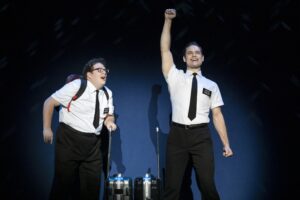
The two leads, Sam McLellan as Elder Price and Sam Nackman as Elder Cunningham were impeccable. The Book of Mormon really lets its music shine. Something that should be a given, but you’d be surprised at how many modern musicals have songs that don’t go anywhere or do anything, or even sound all that theatrical. I mean The Book of Mormon is an excellent example of a perfect musical, at least in the technical sense. The humor was on point, the music wasn’t only catchy and hilarious, but it was beautifully sung and always pushed the story further. The setting, overexaggerated dialogue, and perfectly timed jokes worked together to create this harmony of amazingness. And the dancing? Oh my gosh, the dancing was on another level. The tap and flamboyant boys’ choir inspired movements were so perfect. I was ready to throw my notebook to the wayside and give The Book of Mormon a 10/10 except *record scratch* for the part about Uganda.
Being that this musical came out over a decade ago, it’s no surprise that it’s shocking, offensive, and at times maybe a little problematic. I mean, if influencers like Shane Dawson and Jeffree Star are any indication, people in 2011 were saying wild things. Fine. I was ready for all of that. What I wasn’t ready for, though I guess I should have been considering the names previously mentioned, was the potential…racism? And the question mark is included because that’s truly how I felt. Sitting in the audience of majority white people (Whether that’s because that’s the population of Austinites that would go to a play on a Tuesday eve, or that’s the audience this particular play garners, I’ll never know.) watching everyone laugh around me as a black person portraying a Ugandan screams about how they’re going to rape a baby to cure the AIDS that everyone in Uganda seemingly has (according to the musical), I could feel my body tense.
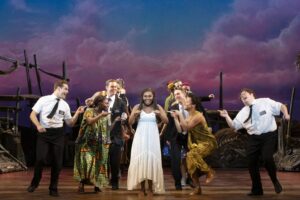
I work for Latinitas. A nonprofit that prides itself on empowering young people of color through STEM and other forms of media. This is Latinitas Magazine, a subsection of that specific nonprofit, where we write uplifting reviews and pieces that shine a light on the Latino community, and herald positive representation. I’m not gonna lie, my mind began racing. I felt kind of upset, as we know there are only so many roles specifically designated for black actors. It felt rather insulting that these roles were what some of those actors were fighting for. That their big break on Broadway would be portraying racial stereotypes in the name of humor and satire. Not that there isn’t a way to write something like this from a perspective that makes the offensive jokes work. But I always look at who the writers were, none of which were Africans, but three men. Two white, and one Filipino, all of which have no right (in my opinion) to characterize Africans in this sort of weird demeaning way. Dare I say South Park has had episodes with better morals than this?
Then came the embarrassment. I’ll be so honest, I’m genuinely embarrassed to feel this way. First of all, I’m not black, I’m a white Puerto Rican-American girl who grew up in Texas. I don’t know if I have a right to even have this sort of opinion. And sitting in an audience, with people cackling every time another joke about genital mutilation or raping someone was sputtered with such normalcy, felt weird. I mean this is an award-winning play. Famous people have lauded their love of this play, Frozen’s Josh Gad originated the role of Elder Cunningham. OLAF! And my conflicting feelings didn’t stop me from finding the songs and moments outside of those jokes pleasurable. I’ll admit the music is great, the actors were phenomenal, I went in wanting to love this play and there are so many songs and aspects I did love.
There was also just stuff I didn’t.
I’m not saying we need to cancel a decades-old famous musical. But I was shocked to find that when I looked further into the controversies surrounding The Book of Mormon, a majority of them had more to do with actual Mormons being offended than anything about race. And I can’t help but wonder why that is. Why is this portrayal of Ugandans, and Africans as a whole, okay? Is it okay? What makes it non-offense so much so that it’s a beloved piece of art? Is it just because it’s a joke, and anything said in jest shouldn’t be taken so seriously? Because the whole joke with the Mormons is that the religion kind of… is like that, so then what are we saying here? Is it because, in the context of the play, the Ugandans aren’t actually like that, this is just the Mormon missionary’s skewed and racist interpretation of their words? And so in that context, the play isn’t racist, it’s the characters in the play? But if that were the case, wouldn’t it be even funnier to clarify that with scenes where we play what the missionaries heard (I.E. rape, AIDS, genital mutilation) with a follow-up scene of what was actually said (I.E. hi)?
And even if the joke is that it’s racist because the missionaries are racist, is that even okay because at the end of the day, you’re still employing actors to portray stereotypes and maybe the play should evolve beyond that? Not that it’s anyone’s job to educate the world on how to not stereotype or not be racist.
And I’m genuinely asking. I don’t have the answers. I have my feelings, and for me, I don’t think it was okay. I loved so many parts of this play, and I was uncomfortable with a lot of others. Something that’s even more embarrassing considering I pride myself on loving offensive humor. Being able to handle the edgy stuff. But towards the end, as one of the black actors dawned white face and began dancing around, while the others gyrated with large fake black…genitals attached to their shorts, it felt insulting.
Aside from the content, I do want to emphasize that all the actors, set designers, directors, and crew did an amazing job on the touring Book of Mormon. It’s definitely a piece of media that got me thinking.
And if you’ve never seen it, or this contemplative review gave you a different perspective, I’d recommend checking it out. Seeing what you take away from it.
You can click here to purchase tickets.

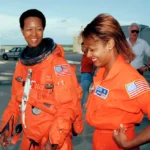
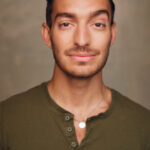

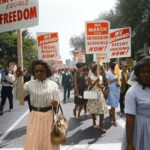



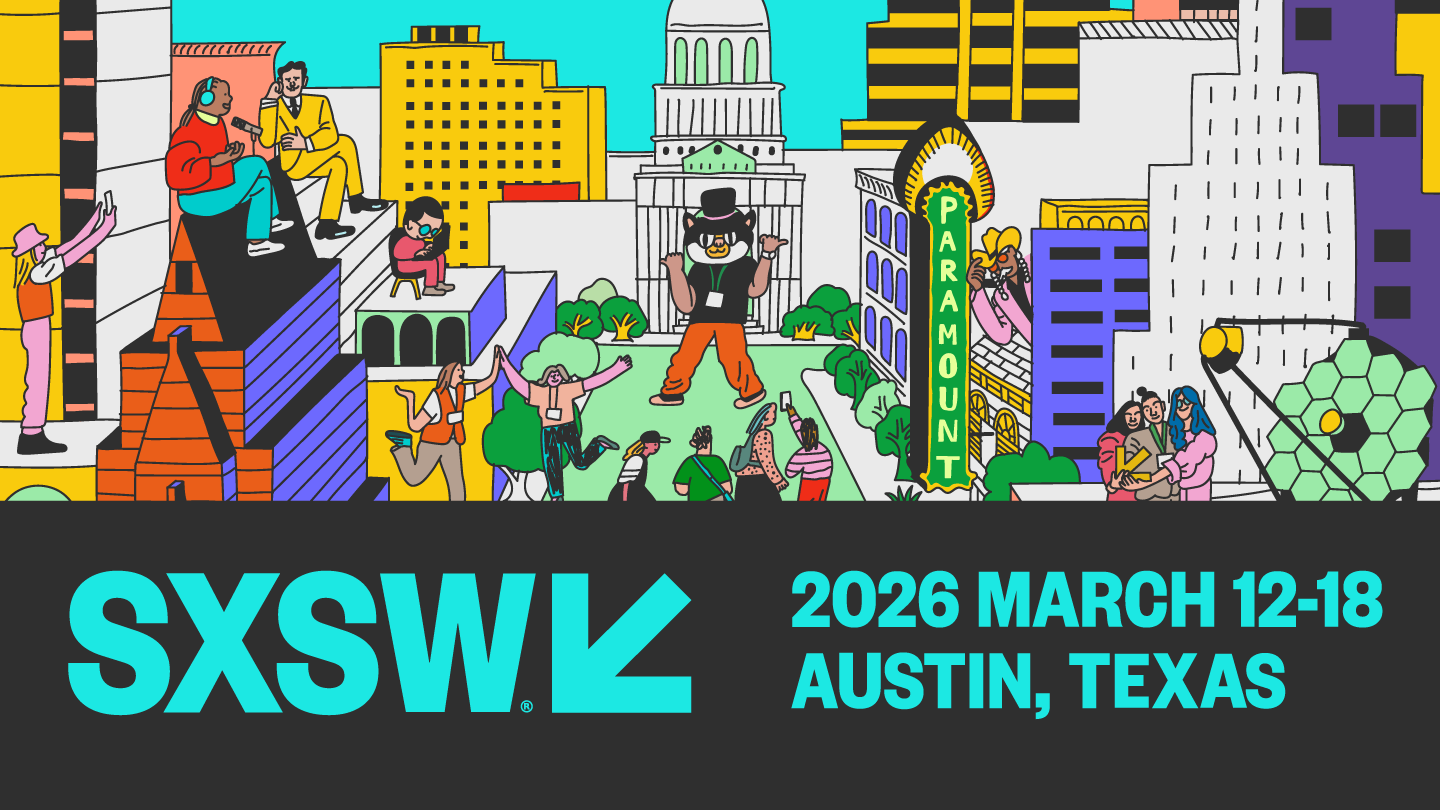
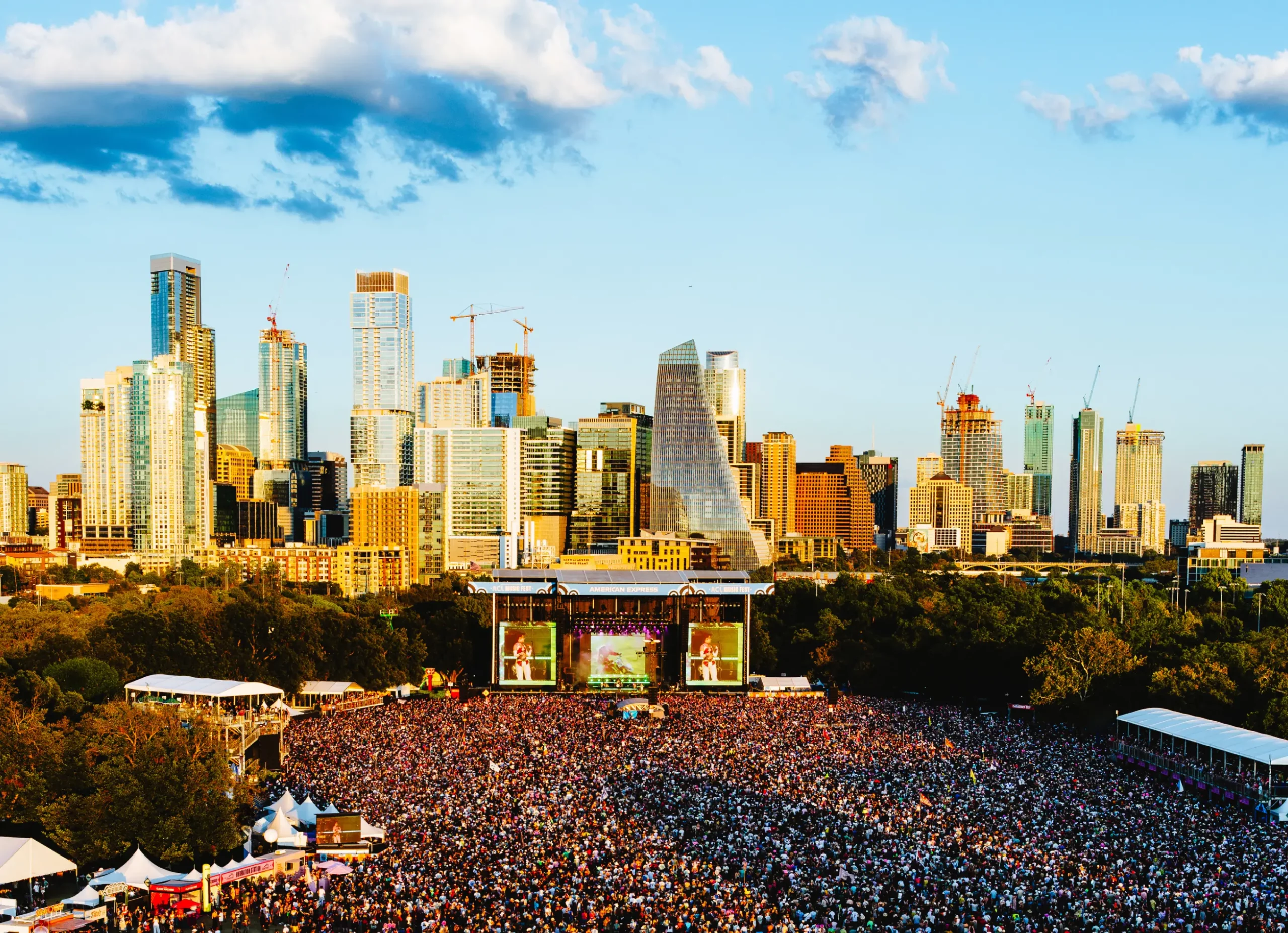

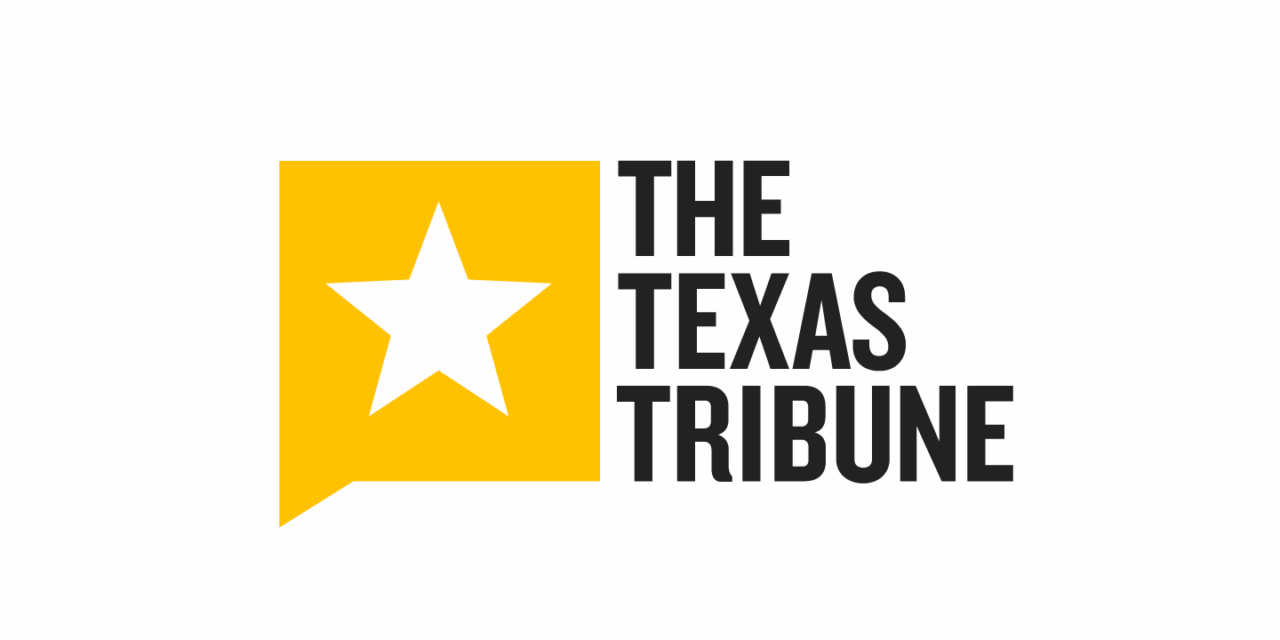
Hi Camila,
Thank you for this article. I am on a search to find critiques and opinions made by the actors within the musical, to gain a better understanding of how others feel, and came across this article.
I searched for articles prior to the show, having concerns that it may be an offensive musical. Many I found said after covid, the overt racism and stereotypes had been removed and replaced with more intellectual humor. That was not the case.
I wish I saw this article sooner, and I appreciate you writing it. You have voiced my own thoughts, that I too felt conflicted by.
I additionally agree that the actors were all phenomenal. From their voices, on stage personas, down to the careful choreography, they were wonderful in every aspect. So I clapped for all of it, because they deserved it! Yet in clapping, I felt conflicted. It felt like I was clapping for the content of which they preformed. I wasn’t.
I am not someone who takes offense, however my humor doesn’t include stereotypes or racism. Not because I can’t handle hearing it, rather I just don’t find it funny, so why would I engage with comedy written in such a way. I was sad to see the reviews I had read prior to going happened to be incorrect, regarding what would and wouldn’t be within the Musical.
However after reading your article I feel more at peace with the conflicted thoughts I’d been having.
Thank you